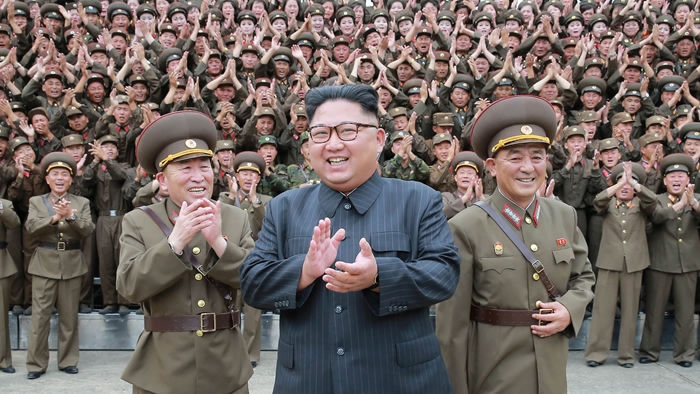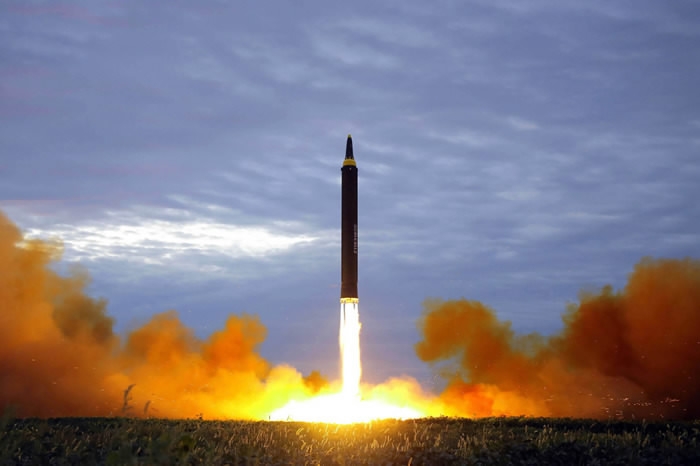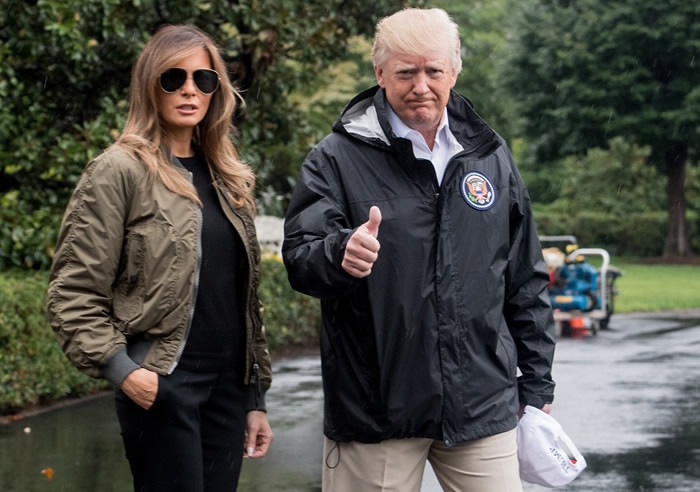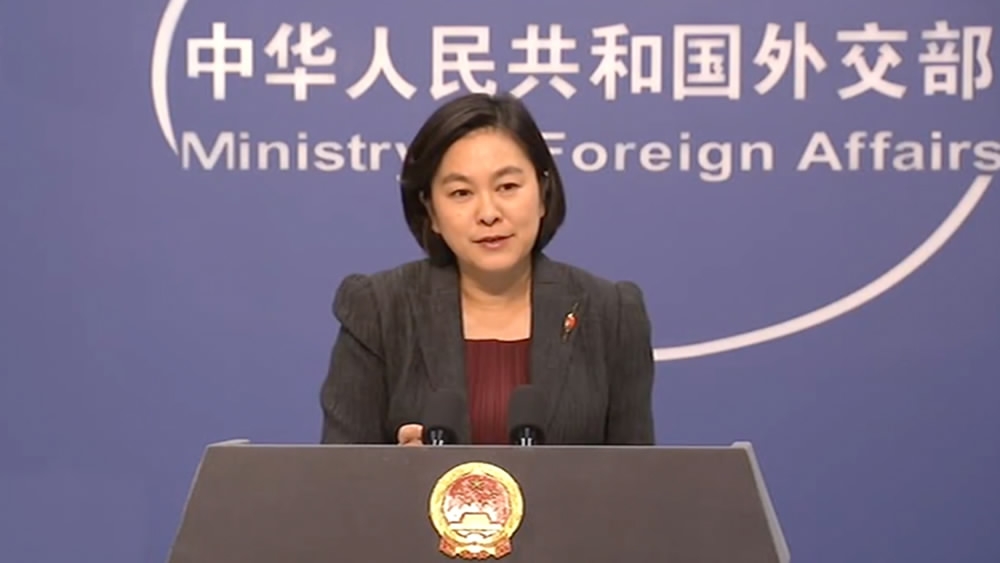
Politics
23:11, 30-Aug-2017
Trump's tweet indicates China-US disagreement on DPRK
CGTN

As China calls for efforts to bring the DPRK nuclear issue back to the negotiation table, US President Donald Trump said "talking is not the answer" on Wednesday, suggesting more pressure and sanctions on Pyongyang.
"The US has been talking to North Korea (DPRK), and paying them extortion money, for 25 years. Talking is not the answer!" Trump wrote in a post on Twitter.
The remarks are a reflection of deep disagreement between Beijing and Washington on how to deal with Pyongyang.

DPRK's intermediate-range strategic ballistic rocket Hwasong-12 lifts off from the launching pad at an undisclosed location near Pyongyang, August 29, 2017. /AFP Photo
DPRK's intermediate-range strategic ballistic rocket Hwasong-12 lifts off from the launching pad at an undisclosed location near Pyongyang, August 29, 2017. /AFP Photo
Trump warned the DPRK the previous day that "all options are on the table" following Pyongyang's ballistic missile launch over Japan.
South Korean President Moon Jae-in and Japanese Prime Minister Shinzo Abe also agreed to increase pressure on the DPRK to an "extreme" level during a phone conversation on Wednesday. But they shared a view that raising pressure should be aimed at inducing the DPRK to come to a dialogue table.
China has been urging restraint among all directly involved parties and calling for a suspension of both the US-South Korea military drills and DPRK's missile tests. Beijing has reiterated that pressure and sanctions are not the fundamental solution to the crisis.

US President Donald Trump (R) and First Lady Melania Trump depart the White House in Washington on August 29, 2017 for Texas to view the damage caused by Hurricane Harvey. /AFP Photo
US President Donald Trump (R) and First Lady Melania Trump depart the White House in Washington on August 29, 2017 for Texas to view the damage caused by Hurricane Harvey. /AFP Photo
Beijing blames both sides
Liu Jieyi, China's permanent representative to the United Nations, told a Security Council meeting on Tuesday that all parties concerned should exercise restraint and to avoid "mutually provocative actions" that might exacerbate regional tensions.
The Security Council resolution adopted on August 5 provides for further sanctions against the DPRK, but also calls for the resumption of the Six-Party Talks and pledges to seek a peaceful, diplomatic and political solution and underscores the de-escalation efforts by relevant parties, he said.
All relevant parties should implement the provisions of the Security Council resolutions "in a comprehensive integrated manner," avoid any rhetoric or action that might raise tension on the Korean Peninsula, and create conditions for the resumption of dialogue, he said.
Chinese Foreign Ministry spokeswoman Hua Chunying made similar comments over the past two days. In response to calls for China to intensify pressure on the DPRK, she slammed "relevant sides" for being irresponsible at a regular press briefing on Wednesday.

"(Certain countries) always run to the forefront when calling for sanctions but hide behind others when efforts are needed to facilitate peaceful dialogue," Hua said. "(Those countries) don't want to take any responsibility, just waiting to reap the fruit."
On Tuesday, Hua indicated that both sides – the US and South Korea on the one hand and the DPRK on the other – were responsible for the escalation of tensions.
The root cause of the nuclear crisis on the Korean Peninsula is security issues and conflicts between the DPRK and the US and between the DPRK and South Korea, Hua said.
The parties directly involved in the crisis must "address each other's legitimate and reasonable security concerns" through peaceful dialogue, she stressed, calling it the only way to resolve the problem "once and for all."
While China urges restraint, calm and dialogue among all the parties, one side directly involved "keeps conducting military drills" and "keeps imposing and intensifying military pressure"; in the meantime, "the other side keeps flexing muscles by launching missiles," she told reporters, suggesting that both sides should take the blame and make more efforts to defuse tensions.
The situation is "now at a tipping point approaching a crisis. At the same time there is an opportunity to reopen peace talks," she said.

SITEMAP
Copyright © 2018 CGTN. Beijing ICP prepared NO.16065310-3
Copyright © 2018 CGTN. Beijing ICP prepared NO.16065310-3